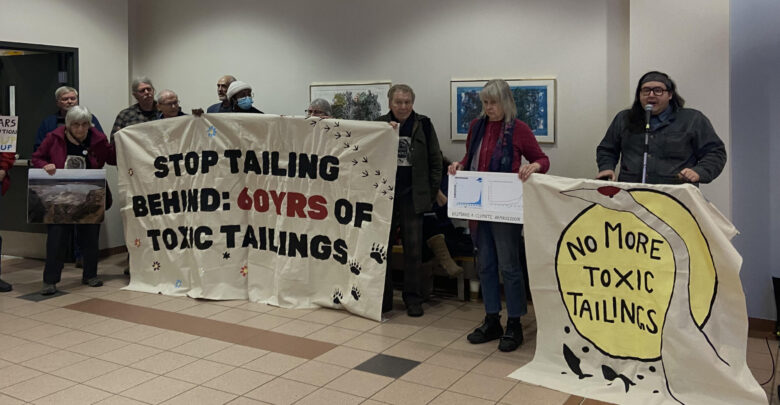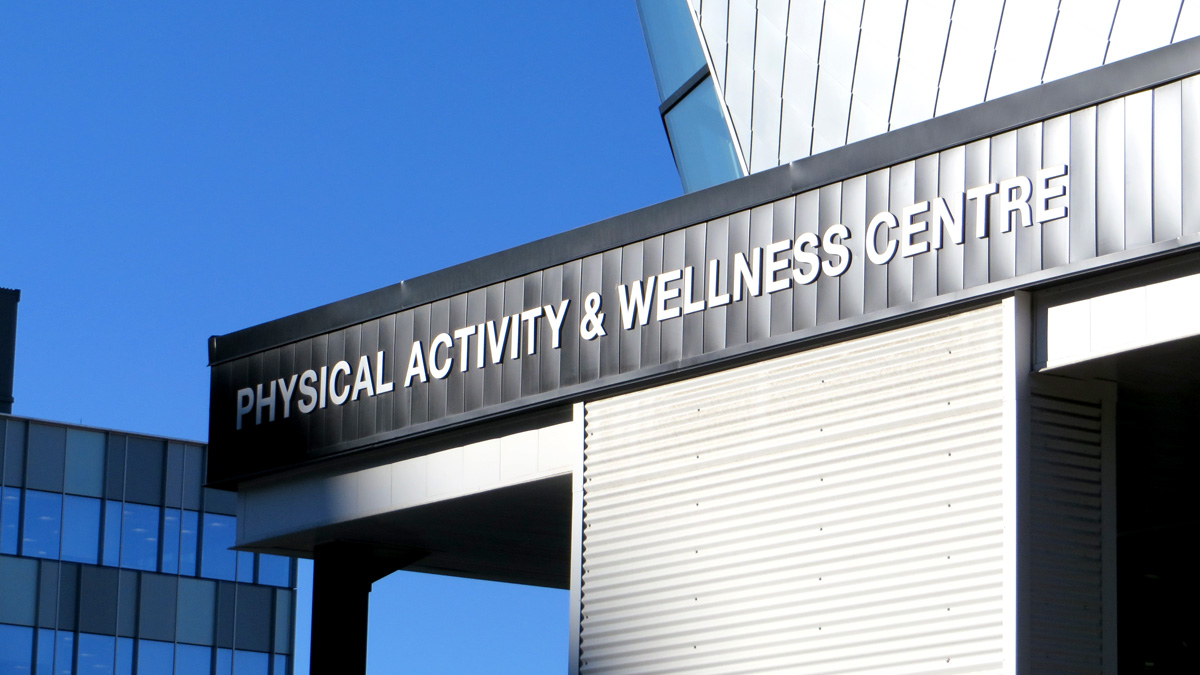Indigenous and environmental coalition hold media conference during oil sands conference
"The prestige of university researchers who collaborate with industry is appropriated by corporations to greenwash their operations," U of A professor emerita says.
 Kathryn Johnson
Kathryn JohnsonOn December 10 at 12:00 p.m., a coalition of Indigenous and environmental organizations held a media conference in response to the International Oil Sands Tailings Conference (IOSTC). The University of Alberta hosted the IOSTC from December 9–10.
The conference was planned to take place outside the Dinwoodie Lounge in the Students’ Union Building (SUB) — where the IOSTC was held — but it was moved to the first level of SUB. Approximately 30 coalition members, U of A students, and faulty attended.
The media conference focused on oil sands tailings. Tailings are the waste leftover from the oil sands extraction process.
Nigel Robinson, a co-ordinator for Keepers of the Water, began the conference. According to Robinson the IOSTC “isn’t necessarily solving the problems that we need to have solved.”
For Eriel Tchekwie Deranger, executive director of Indigenous Climate Action, the IOSTC’s discussion on technologies for “cleaning up the tailings” comes “a little too late.”
“We’re talking about 65 years of oil and gas development that has created hundreds of kilometres of toxic tailings that have been leaching into our groundwater and aquifer systems,” Deranger said. “Enough is enough.”
U of A professor emerita speaks out against “petro-universities”
Laurie Adkin, professor emerita of political science and Climate Action Coalition at the U of A (CAUA) member, also spoke. She discussed her research on university support for the fossil fuels industry. Adkin referred to these universities — the U of A included — as “petro-universities.”
“The prestige of university researchers who collaborate with industry is appropriated by corporations to greenwash their operations,” she said.
In reference to the IOSTC, Adkin said that “important, useful research is being produced on many aspects of the problem.”
“I know this because I reviewed the conference program, but comprehensive solutions acceptable to affected communities have not emerged,” Adkin said.
Paul Belanger, Keepers of the Water’s scientific advisor, discussed why the oil sands industry may be reluctant to address the issue of tailings. According to Belanger, the resistance is partially driven by the cost of changing the oil extraction process.
“There’s been a delay for decades in terms of treating or dealing with these tailings,” Belanger said. “We continue to have this very dirty process that produces very dirty tailings.”
Additionally, Cleo Desjarlais Reece, a Keepers of the Water board member, shared concern for the generational impacts of tailings.
“We don’t know the impacts, as Paul has said, of what these contaminants can do over the long-term,” Reece said.
Reece also emphasized the importance of Indigenous communities being consulted in land and water management decisions.
“Indigenous people have to have a say in what is going on with their lands and water,” she said.




